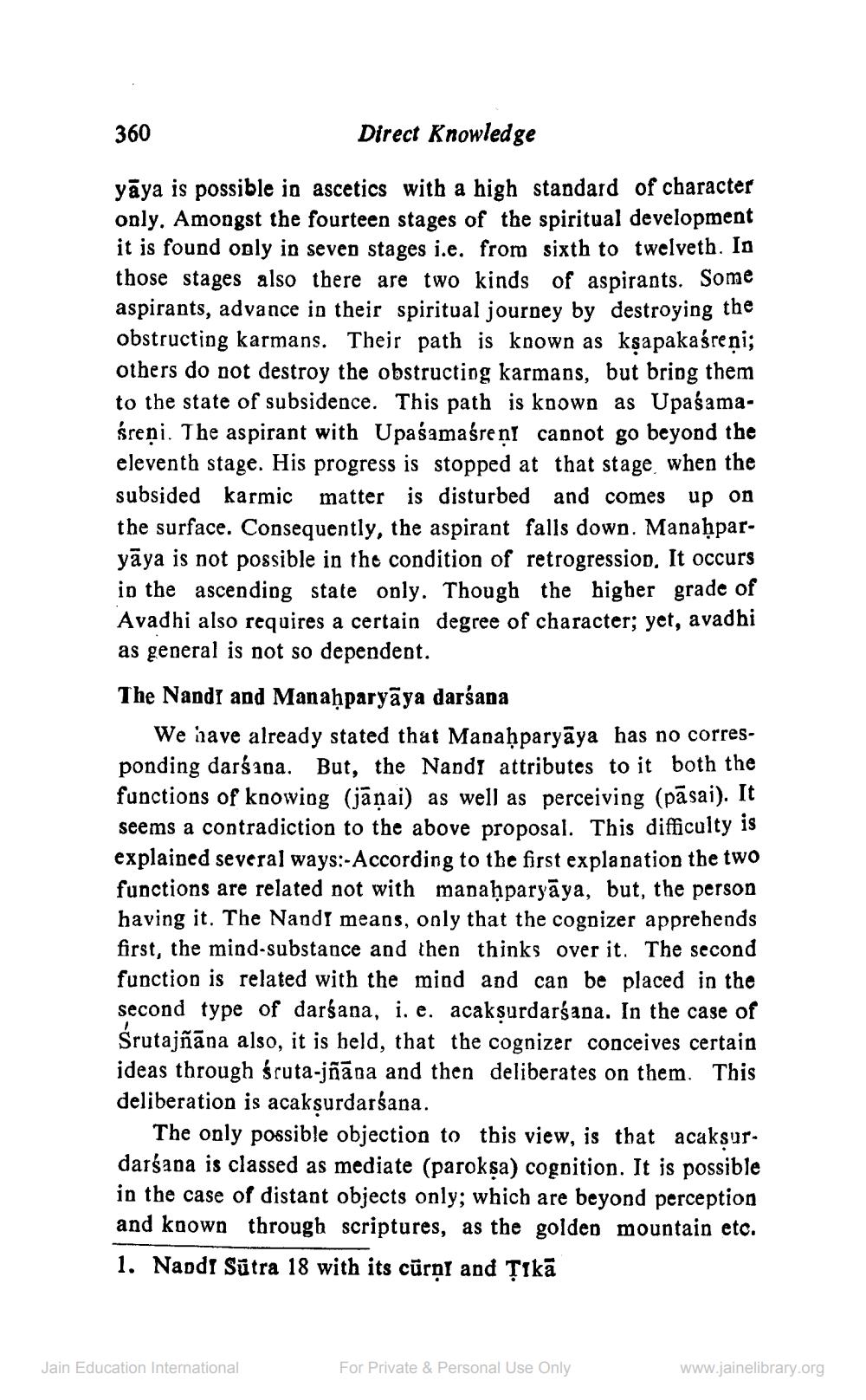________________
360
Direct Knowledge
yāya is possible in ascetics with a high standard of character only. Amongst the fourteen stages of the spiritual development it is found only in seven stages i.e. from sixth to twelveth. In those stages also there are two kinds of aspirants. Some aspirants, advance in their spiritual journey by destroying the obstructing karmans. Their path is known as kşapakaśreņi; others do not destroy the obstructing karmans, but bring them to the state of subsidence. This path is known as Upaśamaśreņi. The aspirant with Upasamaśreņi cannot go beyond the eleventh stage. His progress is stopped at that stage when the subsided karmic matter is disturbed and comes up on the surface. Consequently, the aspirant falls down. Manaḥparyāya is not possible in the condition of retrogression. It occurs in the ascending state only. Though the higher grade of Avadhi also requires a certain degree of character; yet, avadhi as general is not so dependent. The Nandi and Manaḥparyāya darśana
We have already stated that Manaḥparyāya has no corresponding darśana. But, the Nandi attributes to it both the functions of knowing (jāņai) as well as perceiving (pāsai). It seems a contradiction to the above proposal. This difficulty is explained several ways:-According to the first explanation the two functions are related not with manaḥparyāya, but, the person having it. The Nandi means, only that the cognizer apprehends first, the mind-substance and then thinks over it. The second function is related with the mind and can be placed in the second type of darśana, i. e. acaksurdarśana. In the case of Śrutajñāna also, it is beld, that the cognizer conceives certain ideas through śruta-jñāna and then deliberates on them. This deliberation is acakşurdarśana.
The only possible objection to this view, is that acakşur. darśana is classed as mediate (paroksa) cognition. It is possible in the case of distant objects only; which are beyond perception and known through scriptures, as the golden mountain eto. 1. Naodi Sūtra 18 with its cūrņi and Tıkā
Jain Education International
For Private & Personal Use Only
www.jainelibrary.org




